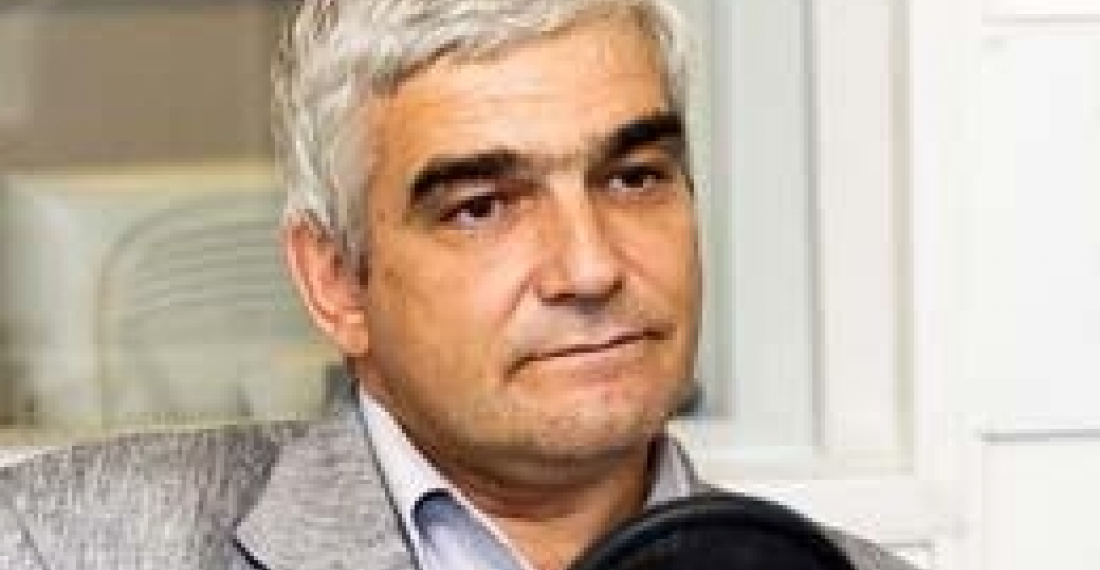ArmInfo's interview with Andrey Ryabov, analyst at the Carnegie Moscow Center
Mr. Ryabov, do you think that the project of the Eurasian Union has chances for implementation? What real benefits may it bring to the possible parties involved?
The project has both positive and problematic aspects. Among the positive aspects is that the post-Soviet countries are well aware that in the foreseeable future they will be unable to become members of some other integration projects. Several years ago the so-called "European dream" was very popular among most politicians of the post-Soviet countries, not it is mainly a slogan.
Probably, the EU has too many own financial and economic problems so it would hardly care for the post-Soviet space...
Today it is obvious that an access to the European Union is denied for at least 10 years. The EU will inventory what it has, it will solve its domestic problems. It will most likely be not the European Union we saw before the crisis. Other attempts of integration formations, for instance, in Central Asia cannot have real success either.
Though the commodity turnover between the potential members of the Eurasian Union is insignificant, the given circumstance cannot be considered as an obstacle in the way of integration. It is not a matter of foreign trade, but first of all it is a matter of interaction between the elites; the ruling elites of the post-Soviet countries are alike and understand one another much better than the Europeans and even the Chinese. Therefore, it is possible to establish a dialogue even in case of restricted economic interaction.
All these factors together let us say that there are no active global players in the post-Soviet space, except Russia. EU is solving its own problems, the USA is interested in security problems, especially, in relation to the expected withdrawal of troops from Afghanistan; it is also interested in interaction with the local political regimes to effectively control the security, but all these problems are not development problems. Today the USA is not even concerned with the problems of democratization of these countries.
What about the negative aspects of the given project?
Alongside with all its positive aspects, the Eurasian Union idea has a big negative side: the key goal is not attained yet, i.e. no engine is fastened to this mechanism. Only big private interests may become the engine. The EU is attractive as it has a project of future - public unification without borders with high social protection, which is not observed for the Eurasian Union yet.
Maybe, that is why Armenia does not harry "to join" the project at least by statements of support...
Armenia's authorities are trying to build good relations with both the post-Soviet countries and the European Union, and the fact that the President of the European Commission and the President of the European People's Party arrived in Yerevan the day after the visit of the President of Turkmenistan is the vivid illustration of Yerevan's multi- vector foreign policy.
Yerevan is negotiating on the EU Association Agreement, and it is very important, but on the other hand, we deal with the Russian proposal on Armenia's joining the Eurasian Union. Certainly, like any other country, Armenia is trying to find some balance in this situation.
If Russia offered some attractive economic prospect in addition to the security system, there would be no doubt about Armenia's policy. I think Yerevan's balancing behavior will continue.
Does Moscow feel any danger that Armenia may shortly leave the wake of the Kremlin's policy?
The people that make decisions in Moscow do not yet feel such danger. Certainly, there may be some adjustments and changes in the future. But at the moment it is very important for Russia to involve Armenia in the integration processes in the post-Soviet space. There is a CSTO, but it solves the problem of security. In the meantime, there is also an economic component of these integration processes, and the Eurasian Union project is directed at that. In this context, I think Moscow will continue its efforts.
Ashot Safaryan
08.12.12 ArmInfo






